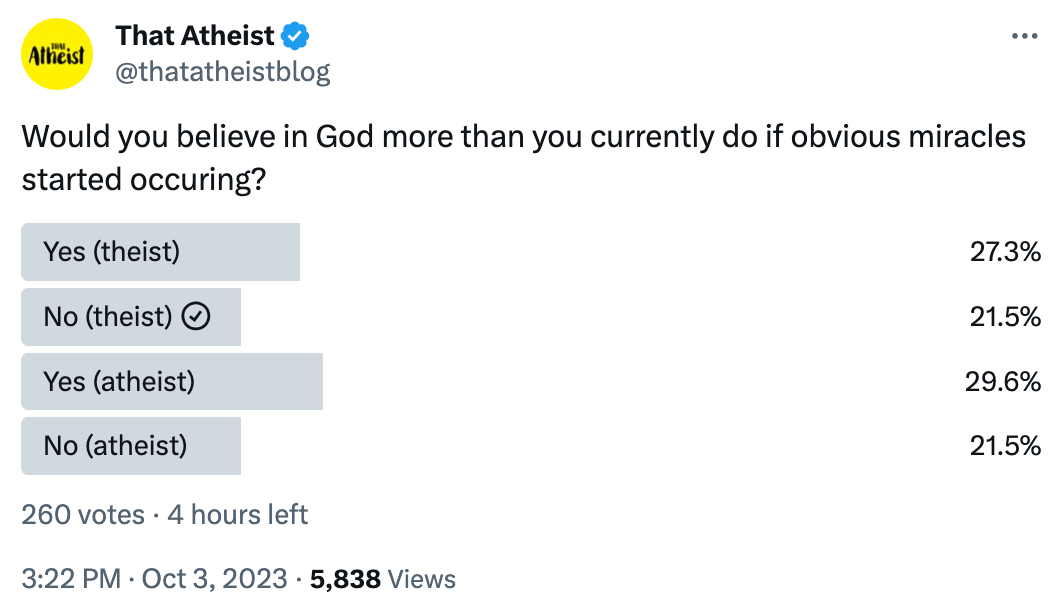What do we do with the truly hard-hearted?
Nothing.
About 42% of atheists responding to this poll say they would not believe in God more if obvious miracles started occurring.
In other polls I’ve seen, a sizable percentage of atheists say they would not worship God even if they had proof of his existence.
Granted, this is what they say. What they would actually do if faced with proof is perhaps something else. I think some of these atheists will believe and even follow when they encounter sufficient evidence. But I take many of them seriously when they say they wouldn't.
As many atheists have pointed out, God could easily show himself to everyone and remove all doubt, but he doesn't. I discussed one reason for this in The Story of the Cosmos: it would be overwhelming and effectively remove our free agency. If God is omniscient, my guess is that he reveals himself in varying degrees only to those he knows will believe and follow, and leaves the hard-hearted to go their own way.
But why?
If I think about this from my flawed, limited, human perspective, I figure God doesn’t want to waste his time. I’ve had plenty of frustrating time-wasting encounters with people, both as a Christian and as a scientist. All I have to do is recall the encounters I’ve had with flat-earthers and other extreme science skeptics to feel the energy drain from my body. No matter what evidence you present to these people, they’re not going to believe. I’m sometimes embarrassed by the number of hours I wasted tilting at those windmills before I learned that lesson.
But God’s ways aren’t my ways—he doesn’t have limited time or finite energy that’s taxed by human stubbornness—so there must be other reasons he leaves some people to their hard-heartedness.
What we can reasonably assume is that one those reasons is love. God loves us, and we are to love him. But there is no love without the freedom to reject. What would it mean if we followed God, not because we truly desired him, but because we were overwhelmed by his power?
What I take from polls like the one above is this. First, some atheists are clearly being dishonest when they say they don’t believe because of a lack of evidence. They don’t want to believe, or they have no intention of doing anything about it even if they would believe. So, evidence is irrelevant for these atheists. Calls for evidence or proof are faux intellectualism providing a veneer of respectability for the real reason they don’t believe or follow God.
Second, as Christians, we have to know there are limits to what we can do when trying to engage others. That's why Jesus told the disciples to shake the dust off their feet when they encountered people who would not listen (Matthew 10:14). He didn't say to endlessly engage every argument until they believed, he said to move on.
Some people make it easy to know when it's time to move on. Maybe the time isn't yet right for them to have that change of heart and mind. Or maybe it's because they're never going to believe. But with others, it can be hard to tell. I know I've agonized over a few of these. There's one thing you can be sure of: it's not all up to you. Just be sincere and do your loving best. If God wants to engage someone, he will find a way.





"He didn't say to endlessly engage every argument until they believed, he said to move on." Ultimately, all that matters is what a person believes, not what others believe.